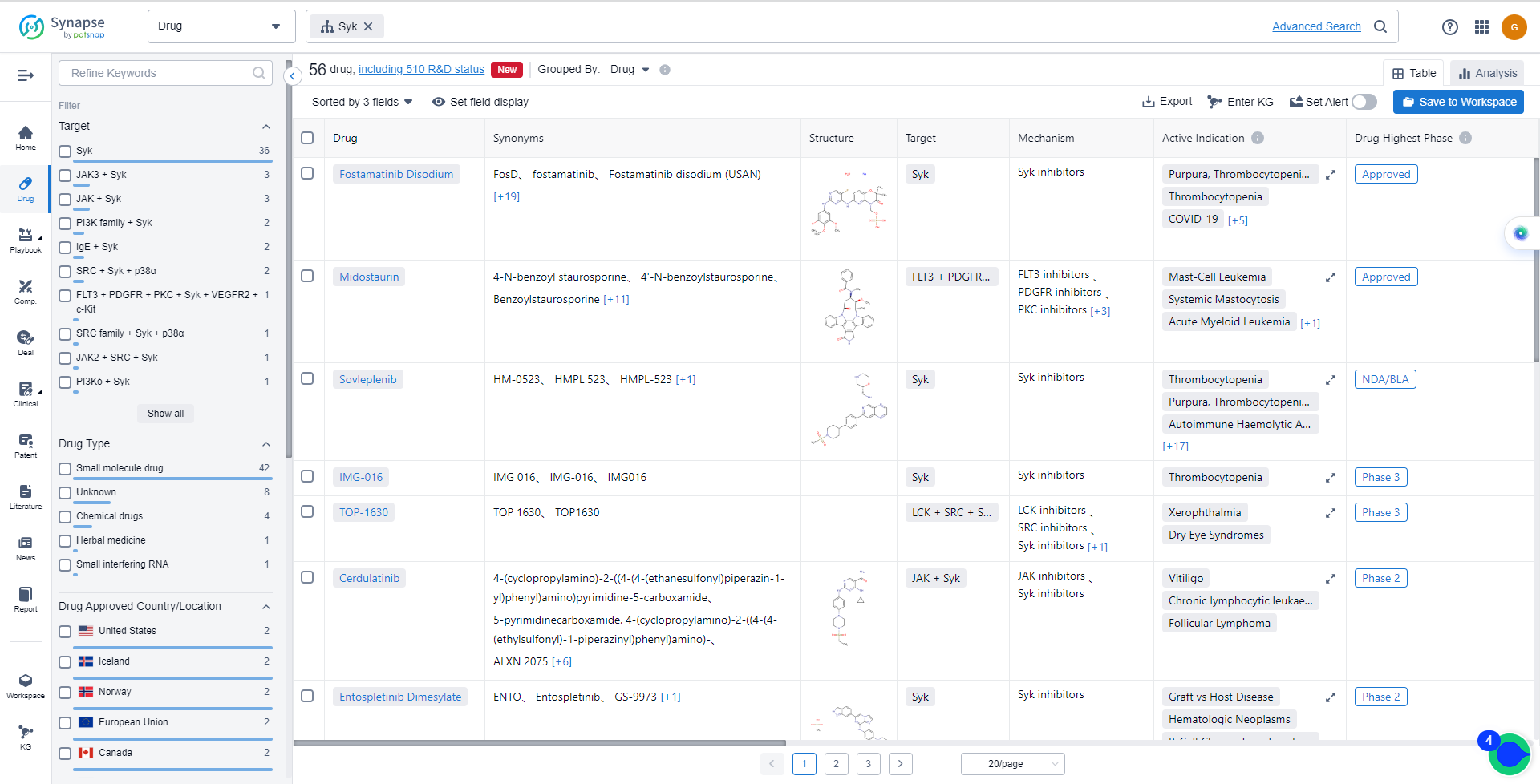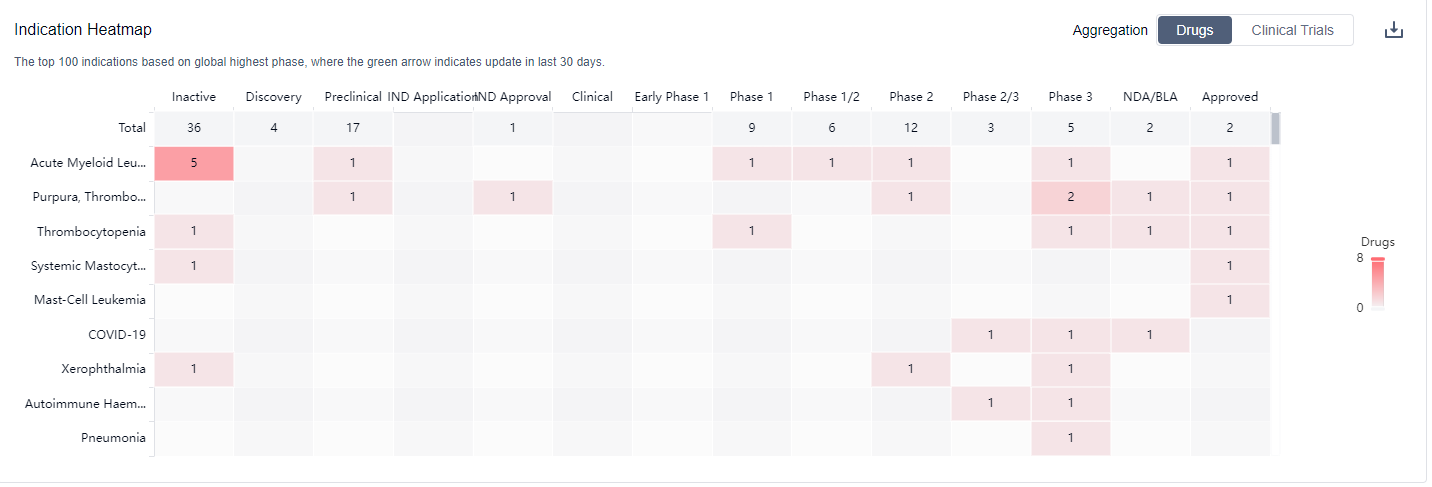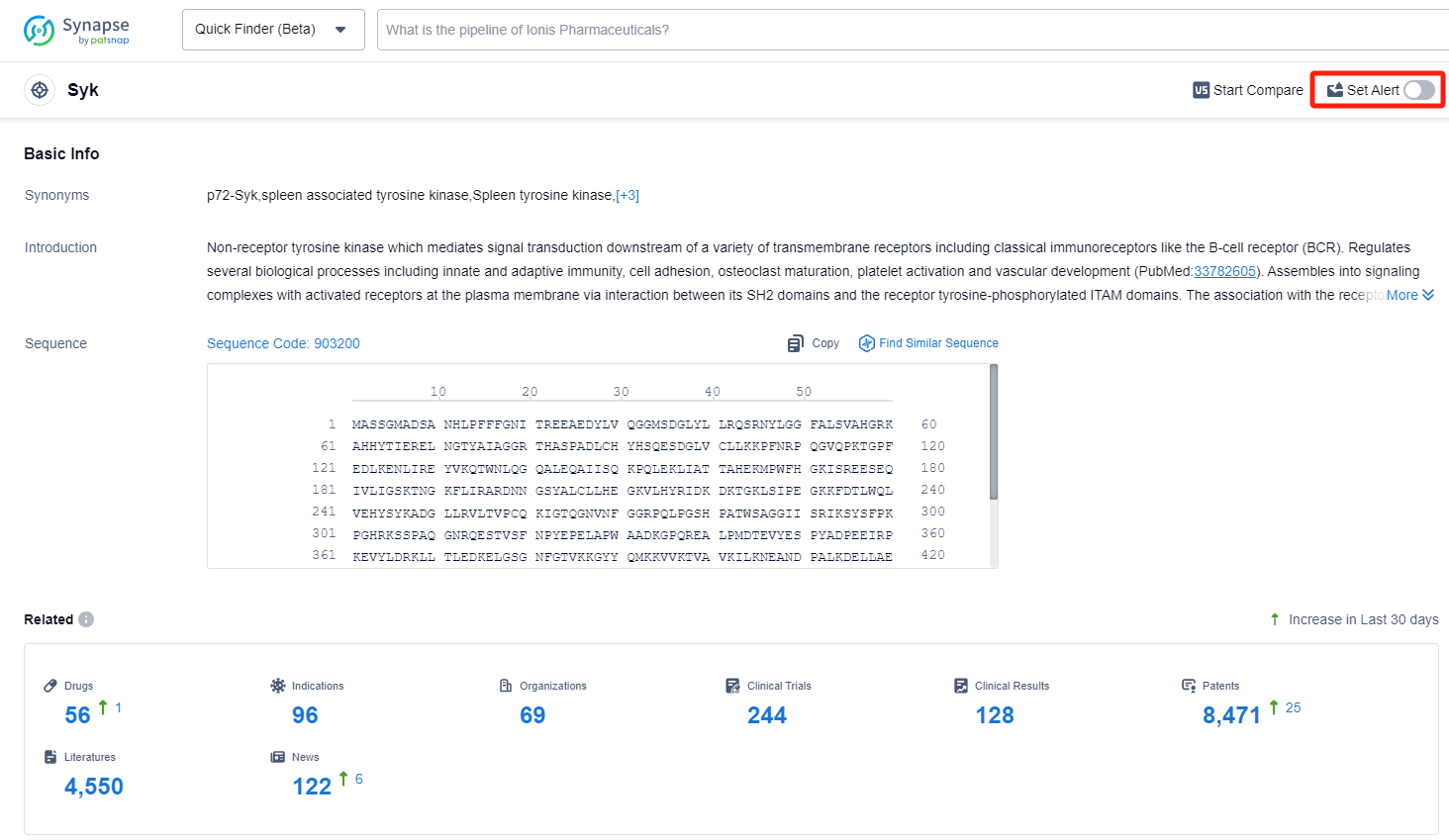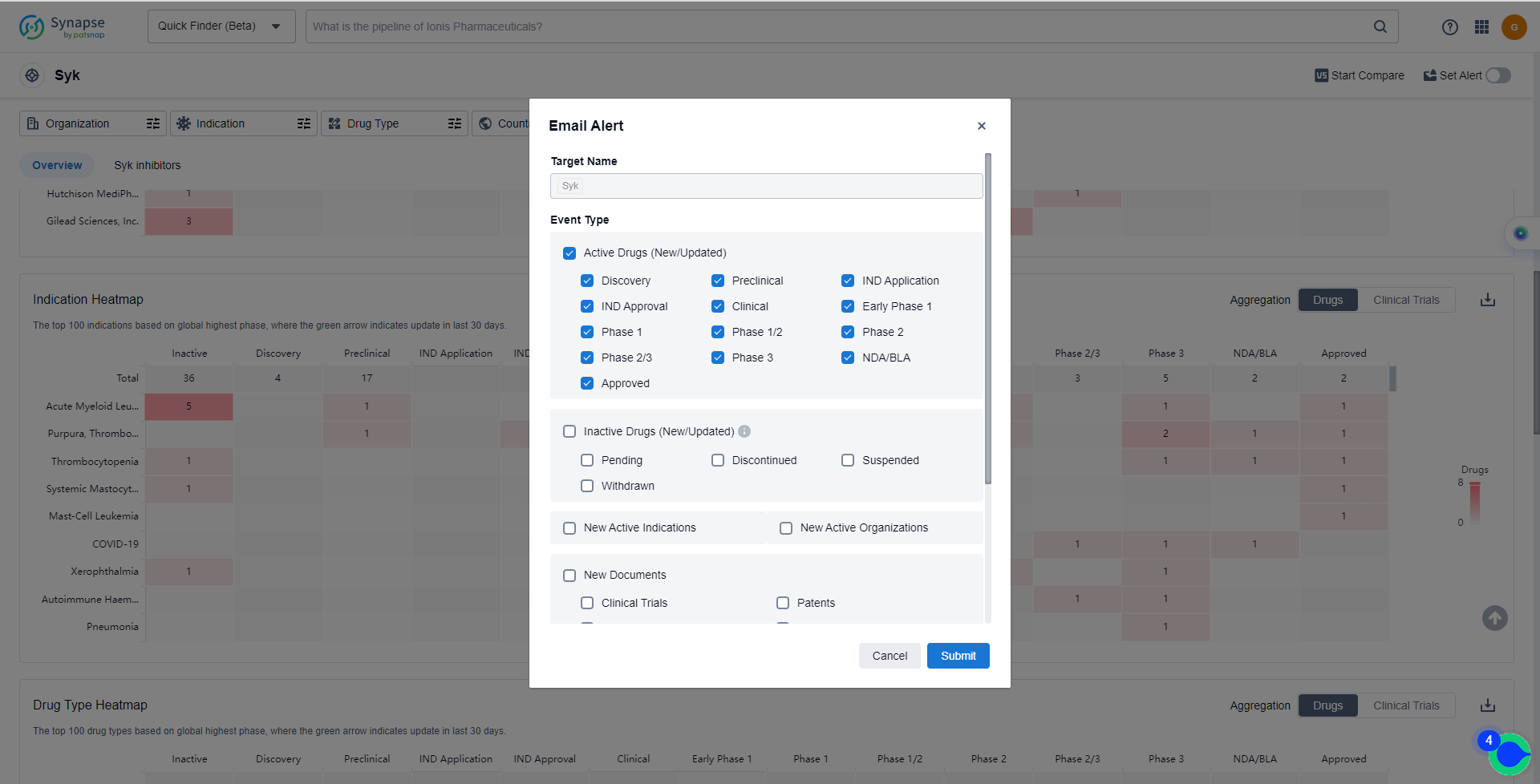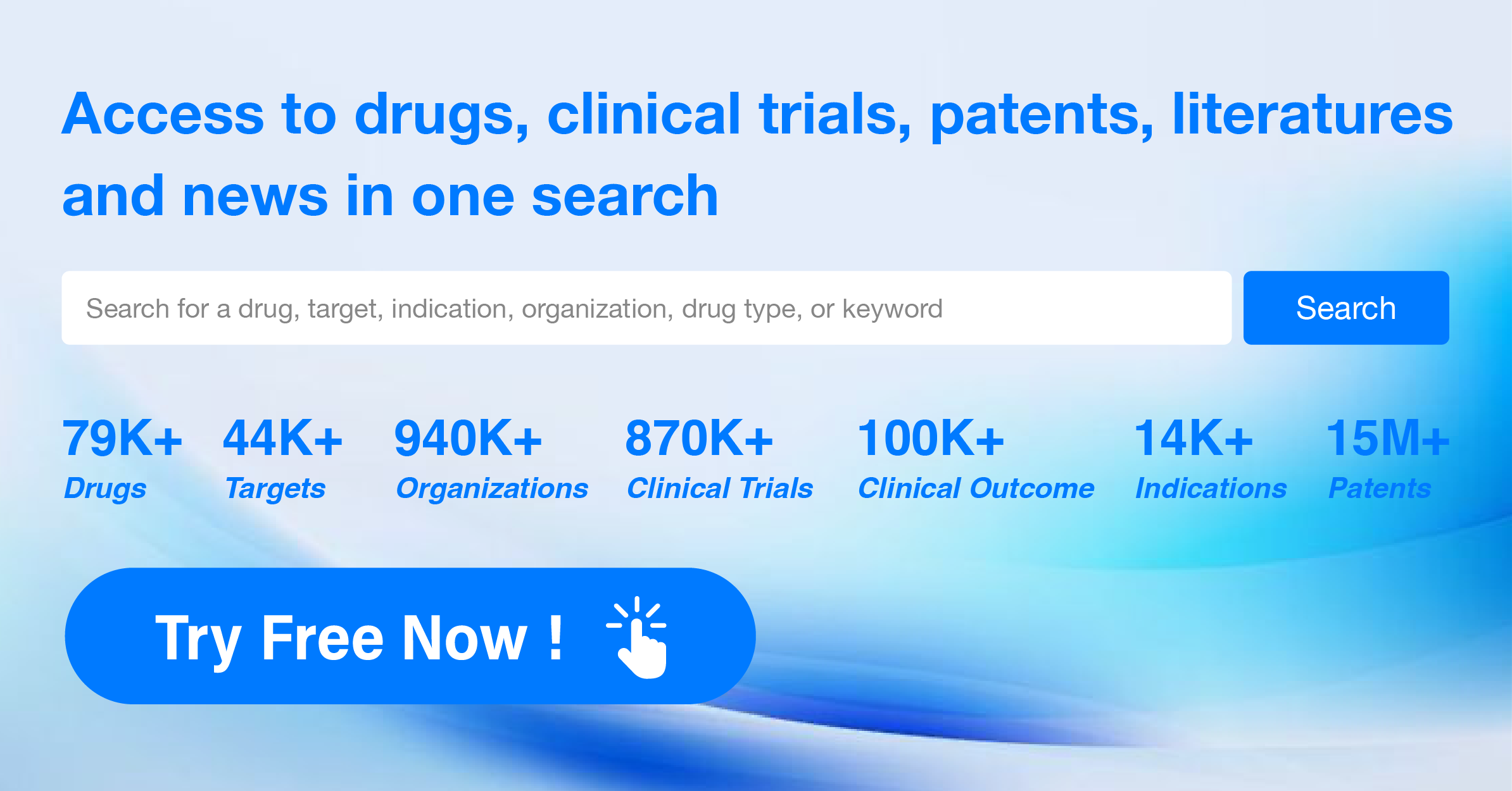What are Syk inhibitors and how do you quickly get the latest development progress?
Syk (Spleen Tyrosine Kinase) is a crucial enzyme found in the human body that plays a significant role in immune cell signaling. It is primarily expressed in cells of the hematopoietic system, such as B cells, T cells, and mast cells. Syk acts as a key mediator in various immune responses, including B cell receptor signaling, Fc receptor signaling, and integrin signaling. By initiating downstream signaling cascades, Syk regulates immune cell activation, differentiation, and cytokine production. Due to its pivotal role in immune cell function, Syk has emerged as a potential therapeutic target for various immune-related disorders, including autoimmune diseases and certain cancers.
The analysis of the current competitive landscape and future development of target Syk reveals that Rigel Pharmaceuticals, Inc., Novartis AG, HUTCHMED (China) Ltd., and TopiVert Ltd. are among the companies growing fastest under this target. These companies have made significant progress in the R&D of drugs targeting Syk, with drugs in the Approved and Phase 3 stages. Drugs targeting Syk have been approved for various indications, covering a wide range of diseases and conditions. Small molecule drugs are progressing most rapidly, indicating their potential as therapeutic options. The development of drugs targeting Syk is taking place in various countries/locations, with the United States, European Union, and China being prominent players. Further research and development are needed to fully explore the potential of drugs targeting Syk and address the inactive drugs in the pipeline.
How do they work?
Syk inhibitors are a type of medication that target and inhibit the activity of the spleen tyrosine kinase (Syk) enzyme. From a biomedical perspective, Syk is an enzyme involved in signaling pathways within immune cells, particularly B cells and mast cells. It plays a crucial role in the activation of these cells and the release of inflammatory mediators.
Syk inhibitors work by binding to the Syk enzyme and blocking its activity. By inhibiting Syk, these medications can help regulate immune responses and reduce inflammation. They are primarily used in the treatment of certain autoimmune diseases, such as rheumatoid arthritis and immune thrombocytopenic purpura.
These inhibitors are considered targeted therapies as they specifically target the Syk enzyme, minimizing potential side effects on other cellular processes. They can be administered orally or intravenously, depending on the specific medication. Syk inhibitors have shown promising results in clinical trials and are an active area of research in the field of biomedicine.
List of Syk Inhibitors
The currently marketed Syk inhibitors include:
- Fostamatinib Disodium
- Midostaurin
- Sovleplenib
- IMG-016
- TOP-1630
- Cerdulatinib
- Entospletinib Dimesylate
- Gusacitinib
- IC-265
- IC-270
For more information, please click on the image below.
What are Syk inhibitors used for?
Syk inhibitors are primarily used in the treatment of certain autoimmune diseases, such as rheumatoid arthritis and immune thrombocytopenic purpura. For more information, please click on the image below to log in and search.
How to obtain the latest development progress of Syk inhibitors?
In the Synapse database, you can keep abreast of the latest research and development advances of Syk inhibitors anywhere and anytime, daily or weekly, through the "Set Alert" function. Click on the image below to embark on a brand new journey of drug discovery!
